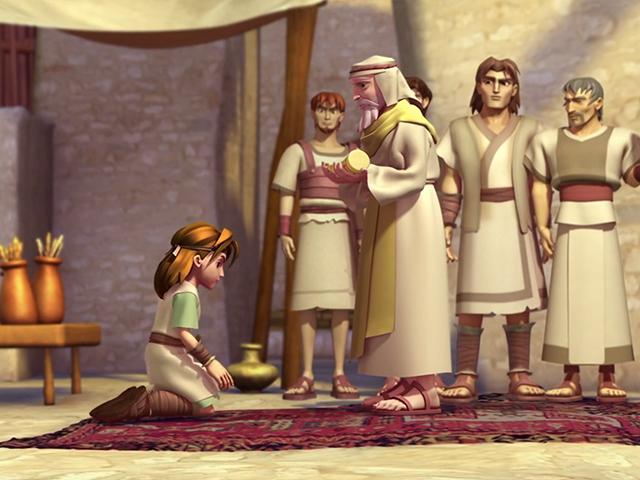An Anointing from God's Own Heart

“All the horns of the wicked I will also cut off, But the horns of the righteous shall be exalted.” Psalm 75:10 (NKJV)
Comparing the lives and actions of King Saul and King David teaches us how to handle the vision and promise God gives us. We all have our "kingdom" that God has prepared for us. Saul and David were given the same promise: they were both kings of Israel. However, they each treated this promise differently. The distinction that occurred in their leadership can be traced to their anointing.
Saul and David were unexpectedly anointed king by the same prophet, Samuel. Saul was looking for his father's donkeys (1 Samuel 9:3) and David was tending his father's sheep (1 Samuel 16:11).
Saul lost his father’s donkeys. Donkeys are highly intelligent animals and easy to train and manage. In ancient times, they were symbolic of wealth and were used by the rich for transportation. The fact that Saul had several donkeys suggests affluence. The carelessness of caring for the donkeys indicates a great lack of concern as their guardian.
Discover the Stunning Evidence That Confirms the Biblical Account of the Dynasty of King David!
David obviously cared for his father's sheep. Even when a famed prophet arrived at his home, he didn't leave them until his father summoned him. Shepherding was considered a lowly job. Servants did the shepherding or many times the last-born son, like David. Sheep are extremely helpless animals. They have trouble finding food and water and lack any ability to protect themselves from predators. In ancient times, sheep roamed the pasture land, so shepherds had to stay alert and attentive.
Saul and David were anointed with the same oil, which comes from the Hebrew word shemen. Oil is symbolic for God's Spirit or Holy Spirit. Saul (1 Samuel 11:6) and David (1 Samuel 16:13) each received God's Spirit. Although they received the same oil, the containers that held their oil were different.
Samuel put Saul's anointing oil into a flask, which comes from the Hebrew word pak. This flask was made by human hands from a prestigious mineral called alabaster. The flask represents human ingenuity and strength.
On the other hand, God told Samuel to put David's anointing oil into a horn, which comes from the Hebrew word qeren. Samuel was scared to anoint David because King Saul was still ruling, so God commanded Samuel to suggest that he was offering a sacrifice to God and anoint the new king in secret (1 Samuel 16:2). The horn represents God’s power and strength.
The anointing containers for Saul and David signify the main difference between their kingships: Saul was the human desire for a king and David was God's desire for a king.
Saul was the human desire for a king. He was a tall man born in prestige. Shortly after Saul was anointed, he was made king before the nation. There was barely any lag time between events. Saul would not submit to the Holy Spirit to become a king after God's own heart. He lived out most of his kingship in the flesh and not in the Spirit. All throughout his life, he lived to please people, not God. Saul was a flask.
During the many years David hid in caves and commanded his growing army, God was able to transform David into a man after His own heart. David's sole desire was to be with God (Psalm 27:4). He lived out most of his kingship in the Spirit. All throughout his life, he lived to please God, not people. David was a horn.
God needs our willingness if He is to transform us into people after His own heart. He wants us to put His desires above our own. He also wants us to be patient and give Him time to change us from the inside out. He will victoriously lead in our designated territories, but we need to be willing to submit to the process. God wants to make our "prestigious" human-made flasks into Horns of Salvation, and the likeness of Christ.
“For those God foreknew he also predestined to be conformed to the image of his Son, that he might be the firstborn among many brothers and sisters.” Romans 8:29 (NIV)
Copyright © 2018 Alisa Hope Wagner, used with permission.





